ESPN looks back at the top ten instances of team orders in F1 history - both obeyed and disobeyed
Obeyed
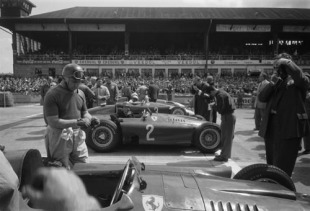
- Drivers:
- Fernando Alonso
- |
- Mario Andretti
- |
- Rubens Barrichello
- |
- Tony Brooks
- |
- Peter Collins
- |
- David Coulthard
- |
- Juan Manuel Fangio
- |
- Mika Häkkinen
- |
- Damon Hill
- |
- Alan Jones
- |
- Eddie Jordan
- |
- Felipe Massa
- |
- Stirling Moss
- |
- Ronnie Peterson
- |
- Nelson Piquet Jnr
- |
- Didier Pironi
- |
- Carlos Reutemann
- |
- Michael Schumacher
- |
- Ralf Schumacher
- |
- Gilles Villeneuve
1956 Italian Grand Prix
Moving over to let a team-mate win a race is one thing, but vacating a cockpit to let him win a championship is quite another. If proof is needed that team orders are engrained in the history of Formula One, Peter Collins actions at the 1956 season finale is it. Three drivers arrived in Italy capable of winning the championship, Juan Manuel Fangio in the Ferrari, his team-mate Collins and Maserati's Jean Behra. Fangio only needed to finish fifth to secure the championship but after 15 laps he retired with a snapped steering arm. His team-mate Luigi Musso ignored calls to hand over his car and then Collins, who had a very real shot at the title, came into the pits. "He saw me stuck there," recalled Fangio, "and without being asked he got out of his car and offered it to me to finish in. That was a fantastic gesture. My anxiety and misery gave way to joy, so much so that I threw my arms around him and kissed him. After that I finished second to Moss, and that was enough." Collins added: "All I could think of was that if I won the race and the championship I would be an instant celebrity. I would have a position to live up to. People would make demands of me. Driving would not be fun anymore, so I handed the car to Fangio. I am only 25 years old and have plenty of time to win the championship on my own." Collins was killed two years later at the Nurburgring when he lost control and his Ferrari careered over a bank. He never won a title.
2002 Austrian Grand Prix
The crowd's discontent could be heard over the two Ferrari engines as Rubens Barrichello came off the throttle to allow team-mate Michael Schumacher power past on the final lap at the A1 Ring. The basic principle of a No.2 driver letting his superior overtake for the championship was palatable at the time, but in this case Schumacher had a comfortable lead in the title race after taking four wins at the first five races. In 2008 Barrichello revealed that he complied because he felt his job was at stake. "The intensity of the conversation increased with every lap. And then I was told to think about my contract. For me it was clear, take your foot off the gas or you will be going home." The public uproar prompted the FIA to ban team orders from 2002 to 2010.
1978 Dutch Grand Prix
Ronnie Peterson faced a full-season of team orders in 1978 as he dutiful accepted his position as No.2 to Mario Andretti at Lotus. The mid-1970s had been a bit of a barren spell for Lotus, but the development of ground-effect aerodynamics on the Lotus 78 and 79 promised to change all that. Andretti had been integral to the development of the concept and although Peterson was considered to be faster by many in the paddock, team boss Colin Chapman saw Andretti as a safer pair of hands. As a result Andretti received the groundbreaking Lotus 79 a race earlier and there were rumours that Peterson was given heavy fuel loads and deprived of sticky one-lap tyres in qualifying so as not to show up his team-mate. Despite being a genuine challenger for the title, Peterson never complained and never attempted to pass Andretti. He finished second to the American on four occasions, including his last finish at Zandvoort ahead of his tragic death at Monza.
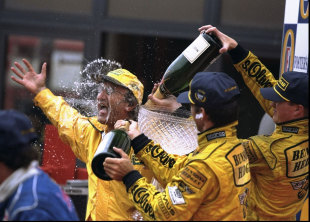
The higher the stakes, the more understandable team orders tend to be. And for Eddie Jordan the stakes had never been higher than when he watched his No.1 driver Damon Hill losing three seconds of his lead on each lap to his No.2 Ralf Schumacher at a rain-drenched Spa Francorchamps. The conditions were appalling and had accounted for the retirement of early race leader Michael Schumacher, who piled into the back of David Coulthard on lap 25. Jordan's first win (a one-two no less) was there for the taking, but as Ralf closed the gap to Hill the cars became twitchier and the prospect of a double retirement loomed. Schumacher was being egged on by his Jordan race engineer Sam Michael and was soon on the back of Hill, who responded by delivering a calm and collected ultimatum to his team. "I'm going to put something to you here, and I think you'd better listen to this," Hill said over the radio. "If we race, if we two race, we could end up with nothing, so it's up to Eddie. If we don't race each other, we've got an opportunity to get a first and second, it's your choice." Jordan was listening to every word on the pit wall and quickly delivered his verdict via Sam Michael to Schumacher: "You cannot overtake Damon. That is a team order." The message was repeated several times before Ralf accepted it and the two Jordans cruised across the line for victory.
1957 British Grand Prix
It's seldom the case that both drivers benefit from team orders, but at Aintree in 1957 Stirling Moss and Tony Brooks both appeared on the podium with broad smiles on their faces. Moss was on pole in the Vanwall and, despite losing a place at the start to Jean Behra, led the race for the first hour until a loss of power forced him to pit. "My fuel injection pipe was broken," he told ESPNF1. His team-mate Brooks was struggling in an identical car and the team made a quick decision to call him in and allow Moss to take over. "We decided to pull in poor Tony because he was still suffering from a shunt at Le Mans and was not in good shape at all," Moss recalled. "He was out on track and he saw that I had retired and was really relieved to give his car to me, because of course it was a three hour minimum in those days." With Behra assuming a comfortable lead in the Lancia-Ferrari ahead of Mike Hawthorn, Moss returned to the track in ninth place but immediately started coming back through the field. "I came out quite a long way down but that suited me fine. You see the trouble is that when you are leading and the car fails, you get labelled as a car breaker. But when you're at the back coming through the field they don't care if you break it. So at least I could have a go." With 21 laps remaining the race swung back in Moss's favour when Behra's clutch and flywheel assembly exploded. The remnants of the Lancia-Ferrari's drivetrain were scattered across the circuit and moments later second-place Hawthorn ran over some of the debris and punctured his tyre. Moss assumed the lead once more and went on to take victory. "Tony is such a nice bloke and it was fantastic to have done it with two British chaps and a British car at the British Grand Prix."
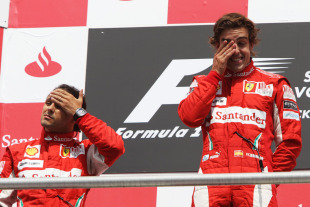
Eight years after the controversy in Austria, Ferrari proved once and for all that a ban on team orders was not policeable in F1. Ahead of the German Grand Prix, Ferrari desperately needed a win to get its championship back on track and, with Fernando Alonso 31 points closer to the top of the drivers' standings than Felipe Massa, it was clear which driver the team was backing. But at the start it was Massa that got past both Alonso and Sebastian Vettel to lead into the first corner, presenting Ferrari with an awkward situation. Alonso was clearly quicker but had no way of getting past Massa, and what's more Vettel was looming behind. Then Massa's race engineer Rob Smedley finally put an end to the illusionary ban on team orders with five simple words: "Fernando is faster than you." For Massa - and the millions of people watching from home - the message was crystal clear, and with 17 laps remaining the Ferraris swapped positions. Alonso went on to win and Smedley told Massa: "Good lad, just stick with it. Sorry." After the race the press hounded the Ferrari drivers and the stewards issued a $100,000 fine to the team, but ultimately the result stood. Set against the history of team orders on this list the command was fairly routine, but because of the rule changes after Austria 2002 it caused uproar. In the end the FIA did the only sensible thing and scrapped the unworkable regulation for good.
2008 Singapore Grand Prix
By far the most extreme example on this list, Crashgate, as it became known, not only crossed the boundary in terms of team orders but also put the whole ethics of the sport in doubt. It all started when Fernando Alonso qualified 15th and Renault's high command met to discuss race strategy overnight. In the early hours of the morning they concluded that a well-timed accident just after Alonso's early pit stop would allow him to make up the necessary ground and put him in a position to lead the race. Renault's No.2 driver Nelson Piquet Jr was informed about the situation and on lap 13 put the plan into action by sliding into the turn 17 barriers. It worked to perfection. Alonso went on to win the race, Renault took a much-needed win to appease their French bosses and Piquet Jr's mistake was put down to a rookie error. However, when Piquet Jr was dropped by the team a year later he revealed all, and the FIA promptly charged Renault with conspiracy. The charges stuck and the team's managing director Flavio Briatore and executive director of engineering Pat Symonds both received bans from the sport.
1997 European Grand Prix
With all the drama surrounding Michael Schumacher's championship-deciding collision with Jacques Villeneuve earlier in the race, little was made of the team orders that dictated the result of the European Grand Prix. Not only did McLaren ensure that Mika Hakkinen finished ahead of David Coulthard, but team orders between Williams and McLaren meant Hakkinen and Coulthard beat Villeneuve. With three laps to go Hakkinen was third behind Coulthard and Villeneuve, but went on to make two of the easiest overtaking moves of his career and took his first F1 win. After the race McLaren boss Ron Dennis said Coulthard had been "very sporting" and when questioned about a conversation that took place between his garage and Williams technical director Patrick Head, he said: "We didn't want to get in the way of the world championship." In reality a deal had been struck for McLaren to stay out of the fight for the lead until Villeneuve's championship was secure, and it was rewarded by the Williams getting out of the way on the last lap. On the plus side everybody was happy, Villenueve had his championship, Hakkinen had his first F1 victory and Coulthard ... oh no wait a minute, he wasn't happy at all.
Disobeyed
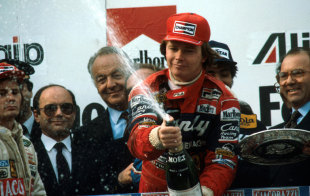
The San Marino Grand Prix at Imola was always destined to be a straight fight between Ferrari and Renault after many of the big names in FOCA boycotted the race due to an ongoing row over excluded cars at that year's Brazilian Grand Prix. However, when both Renaults retired it became a straight fight between Ferrari's Gilles Villeneuve and Didier Pironi. The crowd were kept entertained as the lead switched between the two, but an informal agreement had been reached that whoever was ahead when the team showed a "slow" sign would take the victory. Villeneuve was in the lead when the order was issued and he duly eased off the pace, expecting Pironi to do likewise. But the Frenchman continued to fight and, after a genuine battle, he dived past at the final corner and took victory. Pironi, who claimed he was unaware of the team orders, tried to apologise, but Villeneuve was having none of it. "From now on it's war, absolutely war," he said. "Second place is one thing, but second because the bastard steals it is something else." The next day Enzo Ferrari publicly berated Pironi, but the pair were at loggerheads. Ferrari officials were deeply concerned what effect the row would have on team dynamics. Within a fortnight Villeneuve was killed in an accident while practising for the Belgian Grand Prix.
1981 Brazilian Grand Prix
Team orders have often helped a team secure the championship, but in 1981 they were a factor in Williams losing it. After winning the title in 1980, Alan Jones was the established No.1 driver at Williams and his no-nonsense attitude gained the approval of team bosses Frank Williams and Patrick Head. So when he was running second behind team-mate Carlos Reutemann at the second race of the 1981 season at Rio de Janeiro, the order promptly came from the pit wall for the drivers to swap positions. Reutemann ignored the pit boards and went on to take victory, which over the next few rounds turned into a decent lead in the the championship. However, his actions in Rio had divided the team and squabbling among the ranks saw him miss out on the championship at the last race by one point to Brabham's Nelson Piquet. Williams vowed not to use team orders again unless it was absolutely necessary.
Laurence Edmondson is an assistant editor on ESPNF1
© ESPN Sports Media Ltd.
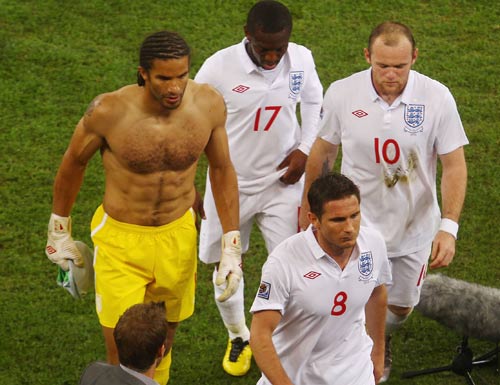 Laurence Edmondson is deputy editor of ESPNF1 Laurence Edmondson grew up on a Sunday afternoon diet of Ayrton Senna and Nigel Mansell and first stepped in the paddock as a Bridgestone competition finalist in 2005. He worked for ITV-F1 after graduating from university and has been ESPNF1's deputy editor since 2010
Laurence Edmondson is deputy editor of ESPNF1 Laurence Edmondson grew up on a Sunday afternoon diet of Ayrton Senna and Nigel Mansell and first stepped in the paddock as a Bridgestone competition finalist in 2005. He worked for ITV-F1 after graduating from university and has been ESPNF1's deputy editor since 2010

